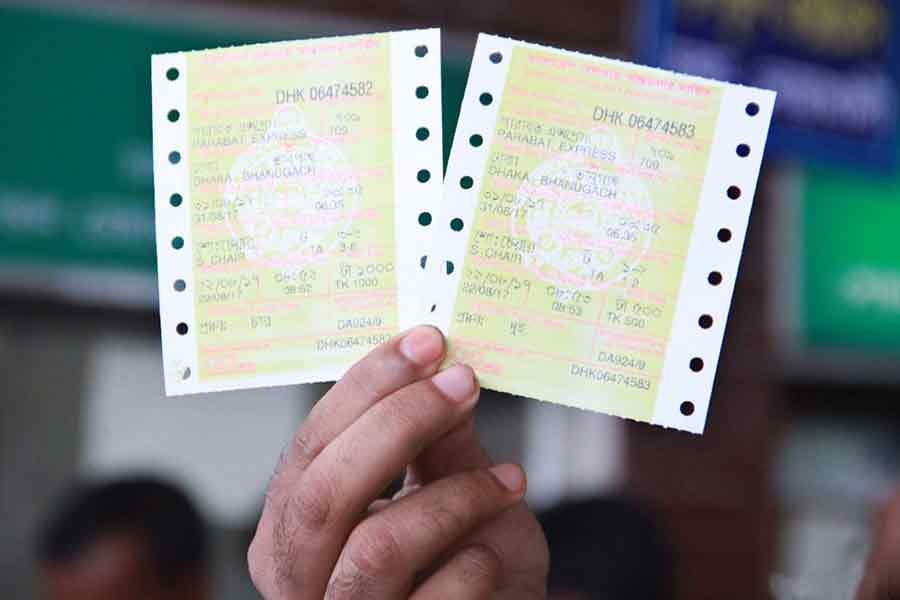
Published :
Updated :

That the Bangladesh Railway's new ticketing system would create a chaotic situation in the beginning had been a foregone conclusion. The online registration system came into effect on March 1. As the new method requires one's NID number and a mobile phone, many couldn't buy tickets for their inter-city train travels. It's nothing unusual. Given our average educated people's intelligence, mobile phone operation for booking railway tickets shouldn't be a difficult task. They performed the job quite smoothly. But problem began facing the feature phone users from the very opening day; their mobile operation being limited to making and receiving calls only. The new railway ticketing process requires one's ability to use a certain SMS for registration. Apart from the requirement of National Identity Cards (NIDs), the names, dates of birth etc containing there have to be matched with that kept in the Election Commission sever. Tickets for a travel can be procured by one upon meeting these requirements.
As has been found at Kamalapur Railway Station in Dhaka, the whole process can aptly be managed by the online-savvy people. For those not fully habituated to using their mobile sets, it could be a cumbersome job. The railway authorities have, evidently, taken the initiative of online tickets to stop the scalping of inter-city train tickets. Stopping travel by railway without ticket is also one of the reasons. In order to stop these illegal activities, the railway authorities have made it compulsory for the travellers to show their NIDs at the Point of Sale to get tickets. Since the arrangement being a radical one thanks to the venue being Bangladesh, extensive preparations and trials should have been there ahead of its final stage. Those could have kept the ordinary people cool, and without anxieties and jitters in the melee.
The railway authorities opened an improvised helpdesk at the Kamalapur station, the lone such desk for hundreds of passengers, on the first day. On being pestered with volleys of questions and requests for help, the people manning the helpdesk wound up the facility. As has been seen at the opening days of the Dhaka metro rail, boy scouts could have been deployed in the vicinity of the ticket counters at Kamalapur station.
As seen on many such past occasions, excesses and over-enthusiasm couldn't be avoided. The passengers who already boarded the trains with tickets bought in advance had to face the POS (Point of Sale) machines to ensure that the railway ticket holders and the passengers were the same persons. However, some check-ups were necessary, like the railway personnel checking the passengers with more than one ticket to ascertain whether the tickets were procured with NIDs or birth registration certificates. Against the backdrop of rampant mismanagement, losses and other irregularities, the railway's initiative of overhauling its ticketing system is a job long overdue. Few can dispute the fact that after decades of questionable activities, financial scandals and an anarchic situation the railway has veritably declined to an anemic state. At one time the railway sector was dismissed as a source of continuous haemorrhage. It is only in the recent times that it has started recuperating. The new ticketing system adopted by the Bangladesh Railway is not expected to correct all its persistent ills. But it can at least work as a prelude to the emergence of a properly functional national sector, which has consigned its bleeding past to oblivion.


 For all latest news, follow The Financial Express Google News channel.
For all latest news, follow The Financial Express Google News channel.